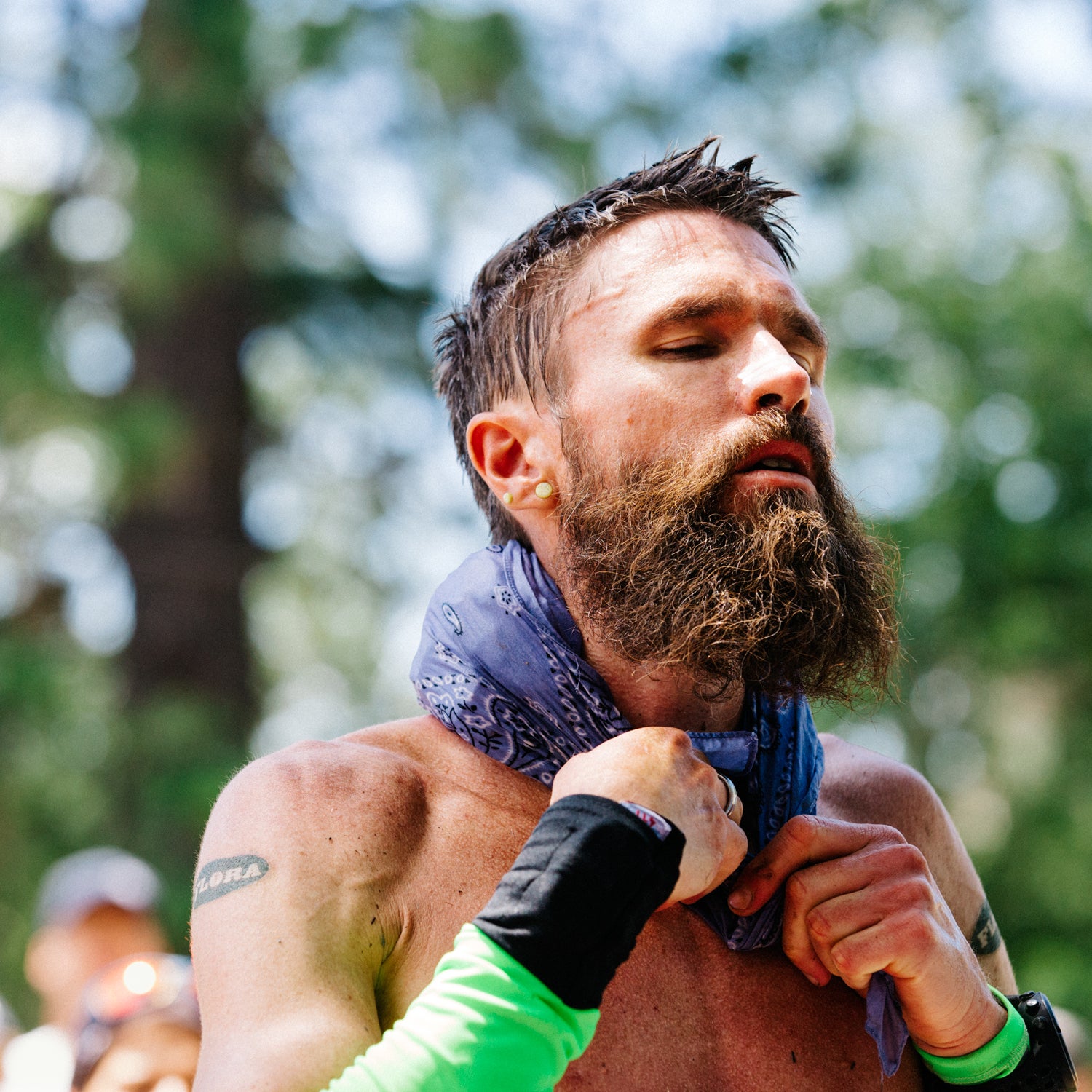When Krar ran his first 100-miler, the 2013 Western States 100, temperatures soared to 108 degrees. He took second place and has since gone on to dominate warm-weather events: Krar won Western States in 2014 and 2015, and he holds the FKT of the 42-mile Rim-to-Rim-to-Rim run in the Grand Canyon. Living in Flagstaff, Arizona, Krar runs in the heat out of necessity, but it also helps him physiologically: scorching workouts can increase blood plasma volume and boost the ability to adapt to dehydration. Crib from Krar’s experience to get the most out of your summer runs.
SAFETY FIRST: “Training and racing in the heat takes extra planning, both to make sure you’re performing the way you’d like to and simply to keep yourself safe.”
ADAPT: “Adjust your pace, effort, strategy, and expectations.”
HYDRATION IS KEY: “Drinking extra water is an obvious one. There are so many factors that influence intake that offering a formula might be counterproductive. I’ve always found smaller and more consistent sips, rather than guzzling sporadically, works better for me. Always carry enough for your planned route and beyond in case things go wrong on the trail.”
NATURE CALLS: “I use a pee test during hot training and racing—the color and, maybe more significantly for me, how often I’m going.”
FUEL THE FIRE: “Keep up on salts and electrolytes however you can. My main sources of fuel are gels, chews, and Roctane drink mix, which cover my needs when the mercury rises. Salt tabs are also good if you’re fueling with foods that aren’t as high in salt and electrolytes.”
ICE ICE BABY: “My strategy has always been heat management rather than heat training. Ice is king—ice bandanas, ice in a hat, ice in arm sleeves. At aid stations, my crew has fresh hats and bandanas ready to go with ice that they haul around.”
CALM DOWN: “Heat can play foul with your stomach, so stick with bland food. I’ve also found ginger chews to be effective in calming my stomach during hard efforts.”
TAKE YOUR TIME: “Heat management is a calculated decision. I probably spend more than 15 minutes over the course of a race on it, but the extra time is easily made up by being the right temperature.”
RACE SMART: “I don’t actually like training in the heat. It’s far from my favorite element. But I appreciate the adversity it presents and feel rewarded when I have success. We can all grunt it out when we need to, but it’s the smartest of the fastest runners who wins the race.”


